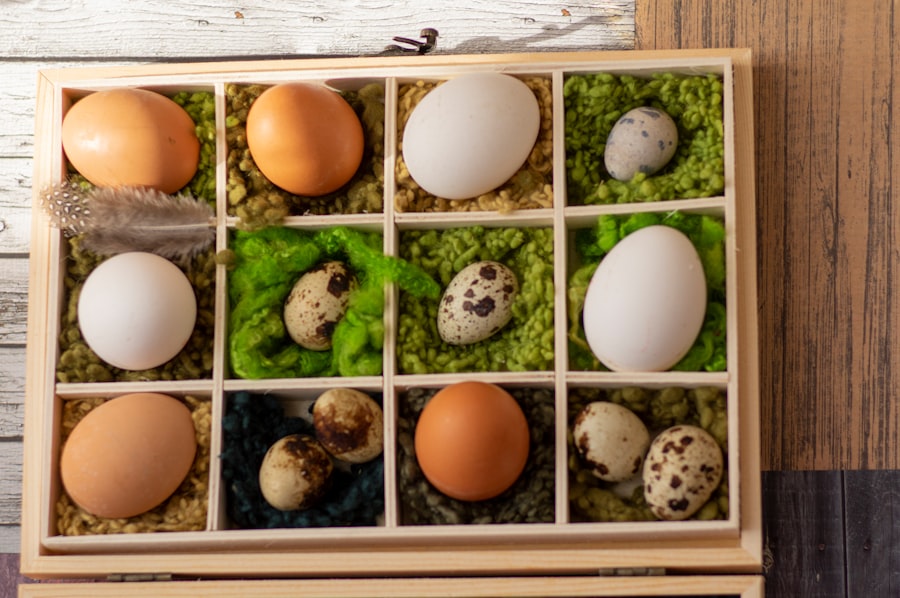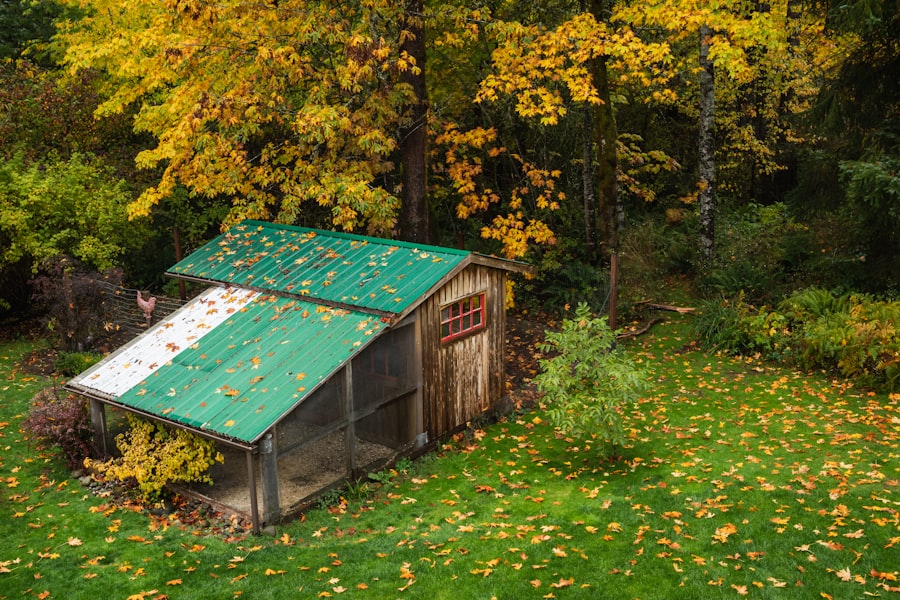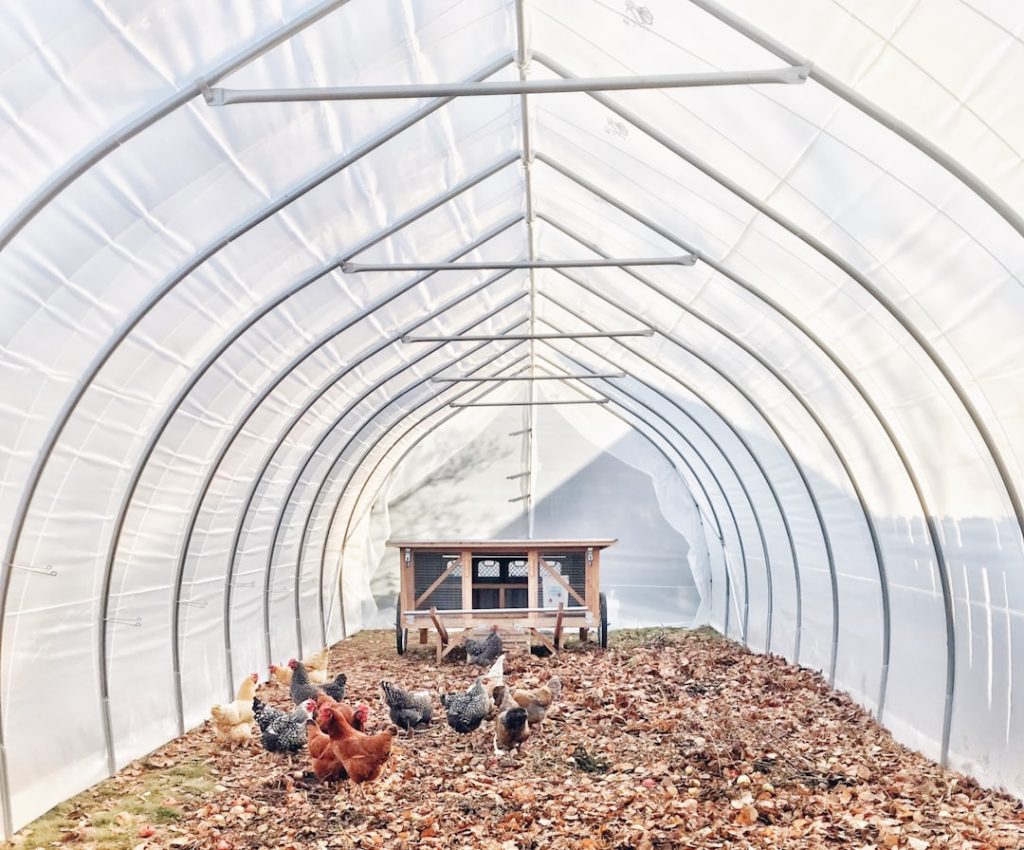Maintaining cleanliness in chickens is crucial for their health and welfare. Clean chickens have a lower risk of contracting diseases and parasites, which can negatively impact their health and productivity. Cleanliness also contributes to the comfort and contentment of chickens, potentially leading to improved egg production and quality of life.
A clean chicken environment promotes safety and hygiene for both the birds and their caretakers, while also reducing the risk of food supply contamination. Cleanliness in chicken-keeping also supports flock sustainability. By preventing diseases and parasites through proper hygiene, the need for expensive veterinary care and medications is reduced.
This approach is not only cost-effective but also minimizes the environmental impact of pharmaceutical use in poultry farming. Clean chickens tend to have longer, healthier lifespans, contributing to a more sustainable and productive flock over time. The importance of cleanliness in chicken-keeping is significant, as it directly affects the health, productivity, and long-term viability of the flock.
Table of Contents
- 1 Creating a Clean Living Environment for Chickens
- 2 Regular Cleaning and Maintenance of Coop
- 3 Bathing and Grooming Chickens
- 4 Managing Chicken Waste
- 5 Preventing and Treating Parasites and Diseases
- 5.1 Preventing and treating parasites and diseases is essential for keeping chickens clean and healthy. This involves regular inspections of your flock for any signs of infestation or illness, as well as implementing preventative measures such as regular cleaning, grooming, and providing a clean living environment.
- 5.2 Treatment and Quarantine
- 5.3 Nutrition and Immunity
- 6 Tips for Keeping Chickens Clean and Healthy
- 7 FAQs
Key Takeaways
- Keeping chickens clean is important for their overall health and well-being
- Creating a clean living environment for chickens involves regular cleaning and maintenance of their coop
- Bathing and grooming chickens can help keep them clean and free from parasites and diseases
- Managing chicken waste is crucial for maintaining a clean and healthy environment for the chickens
- Preventing and treating parasites and diseases is essential for keeping chickens clean and healthy
Creating a Clean Living Environment for Chickens
Designing a Well-Ventilated Coop
A clean living environment for your chickens starts with the design and maintenance of their coop. The coop should be well-ventilated to prevent the buildup of moisture and ammonia, which can lead to respiratory issues in chickens. Additionally, the coop should be spacious enough to allow for easy movement and cleaning.
Easy-to-Clean Materials and Amenities
Using materials that are easy to clean and disinfect, such as plastic or metal, can also help maintain a clean living environment for your chickens. Furthermore, providing ample nesting boxes and perches can help prevent the buildup of waste in the coop, as well as reduce the risk of parasites and diseases.
Creating a Clean Outdoor Space
In addition to the coop, it’s important to create a clean outdoor space for your chickens to roam. This can be achieved by regularly cleaning up any waste in the outdoor area, as well as providing ample space for dust bathing and foraging. By creating a clean living environment for your chickens, you are not only promoting their health and well-being but also reducing the risk of diseases and parasites within your flock. Overall, a clean living environment is essential for the overall health and happiness of your chickens.
Regular Cleaning and Maintenance of Coop

Regular cleaning and maintenance of the coop are essential for keeping chickens clean and healthy. This includes daily tasks such as removing soiled bedding, refreshing water and feed, and collecting eggs. Additionally, weekly tasks such as sweeping or raking out the coop, disinfecting surfaces, and checking for any signs of wear or damage are important for maintaining a clean coop.
It’s also important to regularly inspect and repair any areas where pests or predators could enter the coop, as well as ensuring that ventilation is adequate to prevent moisture buildup. Furthermore, deep cleaning the coop on a monthly or quarterly basis is crucial for preventing the buildup of waste and pathogens. This involves removing all bedding, disinfecting surfaces, and allowing the coop to thoroughly dry before adding fresh bedding.
Deep cleaning also provides an opportunity to inspect for any signs of parasites or diseases within the flock. By regularly cleaning and maintaining the coop, you are not only promoting the health and cleanliness of your chickens but also reducing the risk of diseases and parasites within your flock. Overall, regular cleaning and maintenance of the coop are essential for keeping chickens clean and healthy.
Bathing and Grooming Chickens
Bathing and grooming chickens is an important aspect of keeping them clean and healthy. While chickens are generally adept at grooming themselves, they can benefit from occasional baths to remove dirt, dust, and parasites from their feathers. This can be achieved by providing a shallow pan of water for them to bathe in or by gently spraying them with water using a hose or sprayer.
Additionally, adding diatomaceous earth or wood ash to their bathing area can help control parasites such as mites and lice. Grooming chickens also involves regularly inspecting their feathers, feet, and skin for any signs of injury or infestation. Furthermore, providing regular dust bathing areas for your chickens can help keep them clean and free of parasites.
Dust bathing is a natural behavior for chickens that helps them remove excess oil and dirt from their feathers while also controlling parasites. Providing a designated area with fine sand or dust for your chickens to bathe in can help promote their cleanliness and overall health. By bathing and grooming your chickens regularly, you are not only keeping them clean but also reducing the risk of parasites and diseases within your flock.
Overall, bathing and grooming are essential aspects of keeping chickens clean and healthy.
Managing Chicken Waste
Managing chicken waste is crucial for maintaining a clean living environment for your flock. This involves regularly removing soiled bedding from the coop, as well as cleaning up any waste in the outdoor area where your chickens roam. Properly managing chicken waste also includes composting it to create nutrient-rich fertilizer for your garden or landscaping.
Additionally, providing ample space for your chickens to roam can help prevent the buildup of waste in one area, as well as reduce the risk of disease transmission within the flock. Furthermore, managing chicken waste involves proper disposal of soiled bedding and waste to prevent contamination of water sources or nearby crops. This can be achieved by composting waste away from water sources and using it as fertilizer once it has properly decomposed.
By managing chicken waste effectively, you are not only maintaining a clean living environment for your flock but also reducing the environmental impact of poultry farming. Overall, managing chicken waste is essential for keeping chickens clean and healthy.
Preventing and Treating Parasites and Diseases

Preventing and treating parasites and diseases is essential for keeping chickens clean and healthy. This involves regular inspections of your flock for any signs of infestation or illness, as well as implementing preventative measures such as regular cleaning, grooming, and providing a clean living environment.
Preventative Measures
Additionally, practicing good biosecurity measures such as limiting exposure to wild birds or other poultry flocks can help prevent the spread of diseases within your flock.
Treatment and Quarantine
Treating parasites and diseases in chickens involves consulting with a veterinarian to determine the best course of action. This may include administering medications or supplements to treat infestations or illnesses, as well as implementing quarantine measures to prevent the spread of disease within the flock.
Nutrition and Immunity
Additionally, providing a balanced diet with proper nutrition can help boost your chickens’ immune systems and reduce their susceptibility to parasites and diseases.
By preventing and treating parasites and diseases in your flock, you are not only keeping them clean but also promoting their overall health and well-being. Overall, preventing and treating parasites and diseases is crucial for keeping chickens clean and healthy.
Tips for Keeping Chickens Clean and Healthy
In addition to regular cleaning, grooming, and managing waste, there are several tips for keeping chickens clean and healthy. Providing a balanced diet with proper nutrition is essential for promoting their overall health and immunity. This includes offering a variety of grains, seeds, fruits, vegetables, and protein sources such as mealworms or crickets.
Additionally, providing access to fresh water at all times is crucial for keeping chickens hydrated and healthy. Furthermore, practicing good biosecurity measures such as limiting exposure to wild birds or other poultry flocks can help prevent the spread of diseases within your flock. This includes regularly disinfecting equipment, limiting visitors to your flock, and quarantining new birds before introducing them to your existing flock.
Additionally, providing ample space for your chickens to roam can help reduce stress and aggression within the flock while also preventing the buildup of waste in one area. Overall, keeping chickens clean and healthy requires regular cleaning and maintenance of their living environment, bathing and grooming them as needed, managing their waste effectively, preventing and treating parasites and diseases, as well as implementing good biosecurity measures. By following these tips and practices, you can ensure that your flock remains clean, healthy, and productive for years to come.
If you’re interested in learning more about keeping chickens clean, you might also want to check out this article on large chicken coop ideas. A clean and well-designed coop can make it easier to keep your chickens clean and healthy.
FAQs
What are some tips for keeping chickens clean?
– Provide a clean and dry living environment for your chickens.
– Regularly clean and change their bedding to prevent the buildup of dirt and waste.
– Keep their coop well-ventilated to reduce moisture and odors.
– Provide dust baths for your chickens to help them keep themselves clean.
Why is it important to keep chickens clean?
Keeping chickens clean is important for their overall health and well-being. A clean living environment helps prevent the spread of diseases and parasites, reduces the risk of infections, and promotes good hygiene for both the chickens and their caretakers.
How often should I clean my chicken coop?
It is recommended to clean your chicken coop at least once a week, or more frequently if necessary. Regular cleaning helps maintain a clean and healthy environment for your chickens.
What should I use to clean my chicken coop?
You can use a mild detergent or a specialized poultry coop cleaner to clean your chicken coop. It’s important to use non-toxic and poultry-safe cleaning products to ensure the safety of your chickens.
How can I keep my chickens’ feathers clean?
Providing dust baths for your chickens is a great way to help them keep their feathers clean. You can also gently brush or groom your chickens to remove any dirt or debris from their feathers. Regularly inspecting your chickens for any signs of mites or lice can also help maintain their feather health.

Meet Walter, the feathered-friend fanatic of Florida! Nestled in the sunshine state, Walter struts through life with his feathered companions, clucking his way to happiness. With a coop that’s fancier than a five-star hotel, he’s the Don Juan of the chicken world. When he’s not teaching his hens to do the cha-cha, you’ll find him in a heated debate with his prized rooster, Sir Clucks-a-Lot. Walter’s poultry passion is no yolk; he’s the sunny-side-up guy you never knew you needed in your flock of friends!
– Regularly clean and change their bedding to prevent the buildup of dirt and waste.
– Keep their coop well-ventilated to reduce moisture and odors.
– Provide dust baths for your chickens to help them keep themselves clean.
Meet Walter, the feathered-friend fanatic of Florida! Nestled in the sunshine state, Walter struts through life with his feathered companions, clucking his way to happiness. With a coop that’s fancier than a five-star hotel, he’s the Don Juan of the chicken world. When he’s not teaching his hens to do the cha-cha, you’ll find him in a heated debate with his prized rooster, Sir Clucks-a-Lot. Walter’s poultry passion is no yolk; he’s the sunny-side-up guy you never knew you needed in your flock of friends!







